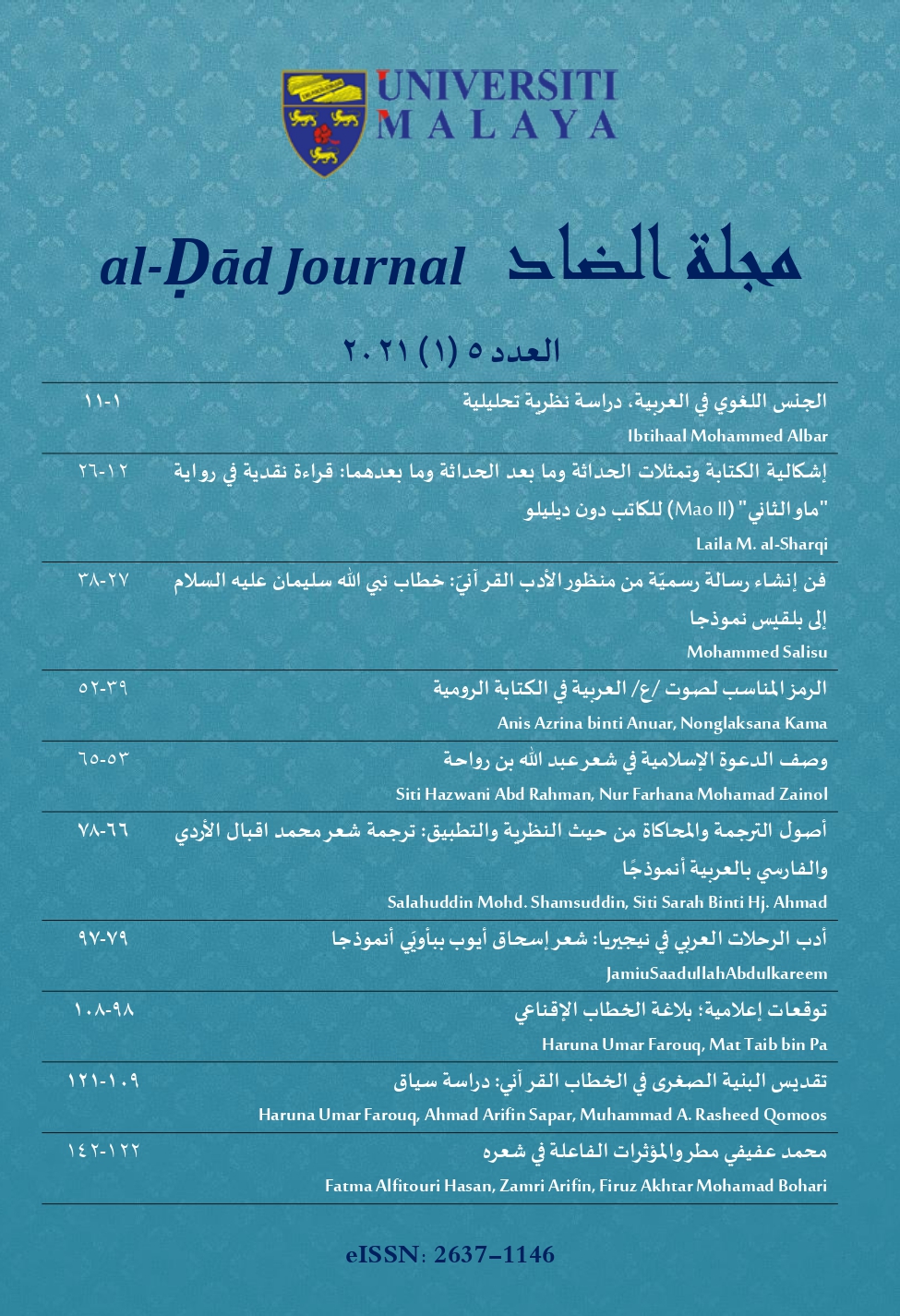The Problem of Writing and Representations of Modernity, Postmodernism and Beyond: A Critical Reading in the Novel “Mao II” by Don DeLillo
Keywords:
modernism, postmodernism, authorship, identityAbstract
The American novelist, Don DeLillo, wrote the novel, Mao II (1991), which uses selfhood and identity to foreground the modern/postmodern vision of human nature as a tabula rasa that is constructed by language, society, and culture. This study argues that while the novel’s protagonist, Bill Gray, represents DeLillo’s modernist tendencies, as the character desires to maintain authentic individualism during a fierce struggle with his culture’s collective mindlessness, DeLillo also describes an ambiguous character, whose life and works complexly exhibit and engage with postmodernist features. Jeffry Nealon’s approach to post-postmodernist literature and post-humanist scholarship are utilized in this analysis to provide a clearer understanding on the convergence of these components. Gray is examined as a manifestation of post-postmodernist tendencies, who ultimately reflects the emerging role of embodiment in contemporary cultural discourse. This study not only elucidates the fundamental changes that society currently faces but also provides a closer reading of the novel and its protagonist by incorporating forms of selfhood and identity that extend beyond reductive modernist and postmodernist conceptions to carry elements of post-postmodernist literature.




